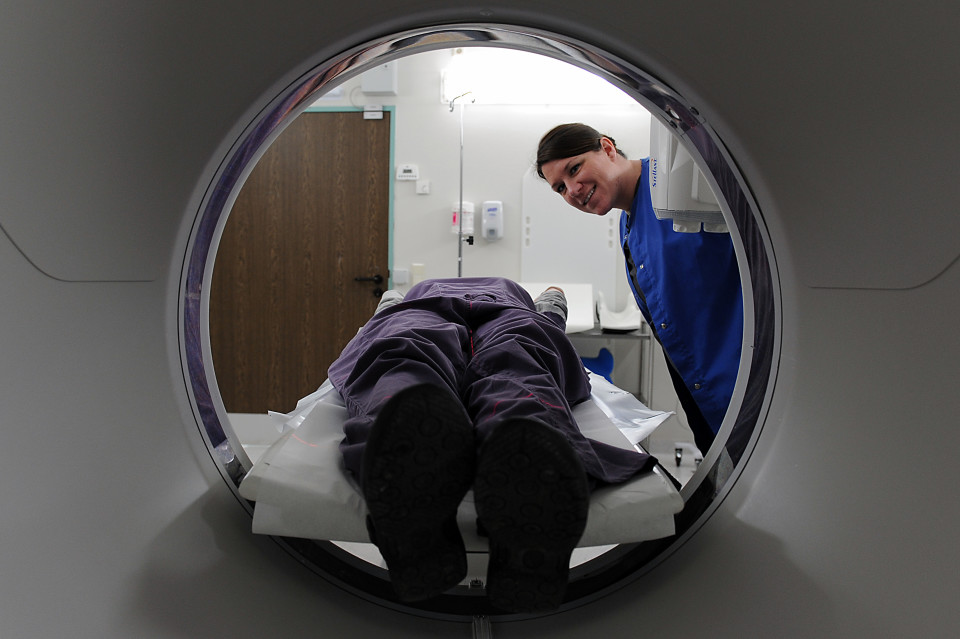What do you think of when you hear “careers in psychology”? If you’re like most people, you’ll picture a man with a strange goatee, talking to clients about their deepest childhood traumas.
But the freudian stereotype sells the profession short. In fact, psychology is a growing field with hundreds of different career opportunities—many of which have nothing to do with therapy at all. Ranging from highly applied to purely academic positions, these jobs cover a wild array of lifestyles, work settings, and approaches.
Let’s take a look at some of the most popular psychology careers, and why they might be a fit for you.
Clinical Psychologist
Of all the careers in psychology, clinical is probably the one most people are familiar with. These are the so-called “head doctors” who appear in movies and books to help unearth deep-seated traumas and long-forgotten abuse. But although many clinical psychologists do work with trauma, there’s a lot more to the job.
Whether it’s helping a client overcome a depression or simply build confidence, this career path is all about empowering others to lead more fulfilling lives. Clinical psychologists work closely with their patients to identify a variety of mental disabilities, mood issues, neuroses, and other psychological problems, and offer treatment options to overcome them.
What’s it like to work in clinical psychology?
On a day-to-day basis, this can translate to a lot of emotional labour: building and maintaining trusting relationships with patients and their families, lending a non-judgmental ear during difficult life moments, and talking people through their most distressing fears and anxieties. They also administer and assess psychometric tests, keep meticulous records of patients’ behaviour throughout the recovery process, and research different psychological disorders.
Clinical psychologists work hard and carry a lot of responsibility, but they also find their work rewarding and meaningful. At the end of the day, they’re helping people lead better, more fulfilling lives—making this a highly satisfying career.
Where and when do clinical psychologists work?
A clinical psychologist’s lifestyle really depends on where they work. In clinical settings, they tend to follow a steady 9-to-5 schedule, with occasional shift work during weekends, late evenings, and holidays for handling emergencies. But for the one third of clinical psychologists who are self-employed, work hours are more flexible. Many private practitioners schedule their sessions during evenings and weekends to accommodate their patients’ schedules.
How much does a clinical psychologist make?
Clinical psychology is a relatively well-paid psychology career, with an average salary of about $79,000 US. That number can range anywhere from $39,000 to $110,000, depending on location, specialization, and employer.
How do I become a clinical psychologist?
The journey to becoming a clinical psychologist is long and competitive, requiring a top notch GPA and a stacked CV. After obtaining a bachelor’s and, in most cases, a master’s, candidates complete either a PhD (for a research-oriented career) or a PsyD (for a practice-oriented one). Next, they hone their skills through a one to two year internship, write the Examination for Professional Practice in Psychology, and finally become certified.
Is social work a psychology career?
Social work is closely related, and often confused, with clinical psychology, but is distinct in some key ways. Just like psychologists, social workers help people overcome mental and emotional struggles and provide support at difficult times in their lives. But the two professions differ in the methods they use to provide that support, and the level at which they create change.
Like psychologists, social workers may provide psychotherapy from time to time, but it isn’t typically the primary focus of their work. Instead, they support clients as educators, advisors, and advocates, helping them to find housing, access outside services, manage their finances, and more. Essentially, they try to restructure their clients’ lives in a way that will encourage positive change and personal success—taking a much broader, more holistic approach than psychotherapy alone can provide.
They also undergo very different training. Social workers can practice with just an MSW (master’s in social work) or LCSW degree (licensed clinical social worker) under their belt. It’s still a long, gruelling course of study, but it’s a little less intimidating than the doctorate required for most psychology positions.
Psychiatrist
Like social work, psychiatry is often confused with clinical psychology. But although these two careers share a common goal—helping people overcome mental health issues—they take completely different approaches.
What, exactly, does a psychiatrist do?
At the most basic level, psychiatrists are interested in the relationship between physical and mental health. On the job, they diagnose, treat, and help prevent patients suffering from all kinds of issues, from chronic depression to rare psychological disorders. They may provide urgent care for unexpected mental illnesses, offer lifestyle advice, refer patients to other healthcare professionals, prescribe medication, or—in extreme cases—recommend hospitalization. Psychiatrists use a variety of treatments in their work, including medication, psychotherapy, psychosocial interventions, and more.
What’s the difference between a psychiatrist and a psychologist?
Psychiatrists and clinical psychologists play a similar role in patients’ lives, helping them overcome mental issues through therapy and other treatments. But unlike psychologists, psychiatrists are also trained medical doctors. This means they can intervene in ways that psychologists can’t, by prescribing medication or admitting patients to hospital care, for example. As a result, psychiatrists tend to spend a lot of their time managing patients’ medications, whereas psychologists are more focused on administering psychotherapy and behavioral interventions.
Are psychiatrists overworked?
Psychiatrists work long, but not outrageous, hours—usually around 50 a week. Depending on their position, they might practice in a physician’s office, hospital, government, or home healthcare setting. But no matter where they work, psychiatrists frequently deal with people who are in an extreme state of distress, making this career difficult and emotionally draining.
Luckily, they also get to witness their patients overcome major personal challenges. For many, this chance to make a positive difference in someone’s life makes the less appealing aspects of the job worth it.
How much does a psychiatrist make?
Psychiatrists are extremely well paid for their time, with the average US practitioner racking up more than $200,000 a year. Salary does vary depending on sector, with some psychiatrists making upwards of $250,000.
Do I have to go to medical school to become a psychiatrist?
The path to becoming a psychiatrist is longer and more challenging than it is for other psychology professions. Candidates first complete a bachelor’s degree, then a medical degree, and finally a 4-year psychiatry residency. Many also go on to become board certified, which requires passing several voluntary examinations. Finally, some psychiatrists choose complete additional specialized training, gaining experience in areas like child development, sleep, or addiction.
Neuropsychologist
Just like psychiatry, neuropsychology is a demanding and intellectually rigorous career. This evolving field brings together the worlds of biology and psychology to unravel the mysteries of the human brain.
At the most basic level, neuropsychologists evaluate, diagnose, and treat neurological conditions that affect thinking, mood, or behavior. They work with patients suffering from a wide range of issues, including stroke, Parkinson’s, epilepsy, Huntington’s disease, brain injury, and more. On a typical day, they might administer brain scans, conduct neurological interview assessments, and create and evaluate individual treatment plans.
What sets neuropsychology apart from other careers in psychology?
Like clinical psychologists, neurologists put in a lot of face-time—with patients, their families, and other practitioners—to improve patients’ ability to function well in daily life. But unlike clinical psychologists, neuropsychologists work at the level of the brain and nervous system, assessing things like hormone function, neuronal decay, and blood flow. They do a lot of problem solving, especially when it comes to treating the more bizarre neuropsychological conditions, making this a challenging but rewarding career.
What’s the lifestyle of a clinical psychologist like?
There’s no way to sugar coat it: neuropsychology is a tough profession. Jobs in this field are both high effort and high responsibility, and typical work schedules rack up well over 40 hours per week. Especially when dealing with unusual cases, a person in this career may spend long hours pouring over brain scan data in order to determine a patient’s underlying condition.
But for those who enjoy a good puzzle, this work can be incredibly rewarding. Of all psychologists, neuropsychologists are among the happiest in their careers. More than 65% of them feel they are contributing to a better world in some way, which makes the long hours worth it.
How much will I get paid as a neuropsychologist?
In addition to enjoying their work, neuropsychologists are well compensated. In the US, the average salary is about $95,000, but salaries as high as $325,000 are not unheard of.
How do I get a career in neuropsychology?
A neuropsychologist’s career trajectory is almost identical to that of a clinical psychologist. After completing both a bachelor’s and master’s degree—usually in either psychology or neuroscience—candidates complete a doctorate in neuropsychology, gain post-doctorate work experience, and finally become licensed through the Association of State and Provincial Licensing Boards. While not required, some neuropsychologists also choose to become board certified in order to increase their employment prospects. Again, this certification requires at least a year’s worth of internship experience and an exam component.
School Psychologist
If you promised yourself you’d never step inside a high school again, then a career in school psychology probably isn’t for you. But for those who enjoyed their younger years, a job in this field can be fun and meaningful.
At its core, school or “educational” psychology is dedicated to improving the student experience: emotionally, socially, and academically. Whether they’re working with adorable Kindergarteners or disgruntled undergrads, school psychologists spend most of their time in educational settings, helping young people overcome their personal challenges to lead more fulfilling lives.
A day in the life of a school psychologist is…
…engaging and extremely hectic. School psychologists wear a lot of hats, and this can make their job both rewarding and challenging. In a single workday, a school psychologist might spend their time figuring out why a particular student is failing, helping kids with anger management issues adapt to daily life, identifying children with learning disabilities, or offering one-on-one counseling sessions. They might also administer IQ testing, coach students suffering from depression or anxiety, and develop and implement plans to help children succeed.
In some cases, school psychologists hold positions at multiple schools, adding an extra element of variety to the job. But while the work itself can be a bit unpredictable, school psychologists have very structured schedules. They work weekdays—usually sometime between 8 am and 5 pm, when school is in session.
How rewarding is a career in school psychology?
In comparison to other psychology careers, the payoff for a school psychologist isn’t that competitive. Salaries average about $77,000 US, but can be as high as $90,000 in some cases.
This is a tough career, but also an extremely satisfying one. While it comes with many challenges, school psychologists have the opportunity to make a positive difference in a young person’s life—often at a time they need it most. Plus, in addition to the more rigorous aspects of their job, school psychologists sometimes get paid simply to play at work!
Is it hard to become a school psychologist?
Unlike many other psychology positions, you can succeed in this career without a PhD. But there’s still a lot of training involved. A school psychologist’s career path usually includes a bachelor’s degree (ideally, in either education or psychology), a master’s or equivalent (either an MA, MEd, or EdS), and an internship (1200+ hours of work experience). Finally, all school psychologists are required to get certified under NASP’s Nationally Certified School Psychologist (NCSP) credential.
Forensic Psychologist
Criminal Minds, anyone? **Real world forensic psychology may not look quite like it does on TV, but, for the right person, this line of work can be exciting and rewarding. On any given day, a forensic psychologist might find themselves in the company of violent criminals or psychopaths, providing the testimony that determines whether they are charged or walk free.
What, exactly, is a forensic psychologist?
Forensic psychology brings together the worlds of law and psychology. Professionals in this field use their expertise to help with a wide range of legal matters, including jury selection, child custody disputes, personal injury cases, and—famously—court testimony. They also conduct mental state examinations of criminal defendants to determine if they can be claimed legally insane and whether they are even competent enough to stand trial.
But the duties of a forensic psychologist extend beyond the courtroom, and can sometimes be as banal as in any office job. A typical day can include tasks like evaluating new policies and initiatives, researching probation dropout rates, or monitoring treatment groups to ensure they’re effective. Most of the time, it’s an engaging job. Some of it is just paperwork.
What’s it like to work in forensic psychology?
Forensic psychology is a high stakes, high stress, high reward career. The work itself is intellectually fascinating, requiring a great deal of critical thinking and problem solving. But it’s also emotionally demanding. Because the subject matter is often psychologically distressing, a thick skin is a must for anyone considering entering this profession.
How much does a forensic psychologist make?
Although the field is growing, it can take time to build up enough work to pay the bills, especially in the private sector. Because attorneys tend to call on people they’ve worked with before, relationships play an important role in the lives of many early career forensic psychologists. For this reason, many who are transitioning from a job in clinical psychology will start their forensic careers on a part-time basis, gradually gaining the connections needed for long-term success.
But overall, forensic psychologists tend to be both very well paid and very happy. In the US, the average salary is about $77,000, with some people making as much as $200 to 400K per year. Perhaps because of the pay, perhaps because the work is meaningful, forensic psychologists have one of the highest career satisfaction scores of all psychologists.
How do I get a career in forensic psychology?
Forensic psychology is a fast-growing field, with the demand for trained professionals far outstripping the supply. But, like most careers in psychology, it requires a lot of training. Candidates typically start by obtaining a bachelor’s and a master’s degree in psychology or a related field, as well as a doctorate in clinical psychology (PhD or PsyD). But forensic psychologists also need to complete postdoctoral work in forensics, gain practical experience (usually 1000 hours, depending on where they are based), and, finally, apply for a license to practice independently.
Industrial-Organizational Psychologist
Like forensics, industrial-organizational (I-O) psychology is one of the fastest growing psychology careers. Job opportunities are expected to increase somewhere between 22% and 53% by 2022. Better yet, it’s rewarding. At its heart, this field is all about cultivating productivity—about helping businesses of all shapes and sizes create more comfortable, effective, and efficient work environments for their staff.
What kind of person makes a good industrial-organizational psychologist?
A career in I-O psychology requires a special mix of business-savviness and social understanding. Professionals in this field apply their psychology chops to solve problems at all levels of the workplace—from management to human resources, administration to sales and marketing—in order to ensure operations run smoothly.
Daily tasks can include planning new workplace policies; testing, selecting, and training future employees; reorganizing offices to boost staff performance; and assisting in organizational development and analysis. They spend a lot of their day in contact with other people, be that via email, on the phone, or in-person, and are sometimes asked to facilitate meetings and training sessions. For those who are shy or have a fear of public-speaking, a career in I-O probably isn’t a great fit.
Where do industrial-organizational psychologists work?
I-O psychologists work in a wide array of settings: in the business sector, academia, human-computer interaction, or consulting. They might find themselves in a huge corporation or a tiny start-up, working on anything from healthcare to paper manufacturing. There’s a lot of variety to choose from, and the job can look very different from setting to setting.
Are industrial-organizational psychologists happy?
I-O psychologists tend to be both well-paid and satisfied in their careers. In the US, the average salary racks up to more than $100,000, with practitioners rating their job satisfaction at a solid 3.8/5—well above average for a psychology career.
What kind of training does an industrial-organizational psychologist need?
Like most psychology careers, people interested in I-O need to invest in a significant amount of schooling. Most start with a bachelor’s degree in human resources, although there are a few programs available that offer I-O-specific training. Then, candidates need to complete a master’s and a doctorate in I-O psychology before they can hit the job market. In a minority of states, industrial psychologists also need to apply for a license to be able to practice.
Research Psychologist
Of all psychology careers, research tends to be the area people are least familiar with. Academically rigorous and intellectually stimulating, this line of work is focused on expanding our understanding of why people think, feel, and behave they way they do. For psychology students who love the subject, but have no interest in working in mental health, a career in research can be a rewarding and engaging option.
What does a research psychologist do?
Research or “experimental psychologists” use experimental techniques to study a broad range of human and animal behavior. Depending on their specialty, they might conduct research on the inner workings of short-term memory, the neurological underpinnings of addiction, the emotional benefits of generosity, or something else entirely.
Many research psychologists are also university professors, balancing their research duties with teaching and academic responsibilities. Others are employed as independent researchers within private companies or government organizations. No matter where they work, a research psychologist’s daily tasks can include any aspect of the experimental process—from designing studies and recruiting participants to analyzing and publishing the results.
Research psychology is…
…a precise, intellectually-stimulating profession. At its heart, it involves a great deal of meticulous data collection, documentation, and organization. But although it’s very people-oriented in subject matter, the day-to-day isn’t always social. Psychology researchers in academic settings tend to be the most connected, interacting with diverse groups of people on a daily basis. But those in private or government sectors often lead solitary lives.
Salaries can vary widely, with some researchers making less than $70,000 US and others earning well over $100,000. In all cases, the hours tend to be long: upwards of 60 hours a week in some cases.
Luckily, research psychology is also an exciting, flexible career. Especially in academia, researchers are self-directed—choosing where, when, and what they study.
Do I need a PhD to do psychology research?
Although there are opportunities available at the master’s level, most research psychologists will need a full PhD to land a job that really interests them. Candidates can choose to specialize in any field, depending on what they plan to research. Especially in the academic world, completing some form of postdoctoral training can open more career opportunities.
Like so many careers in psychology, getting a foothold in this field requires a lot of time and effort. But the payoff—both emotionally and monetarily—is worth it.










